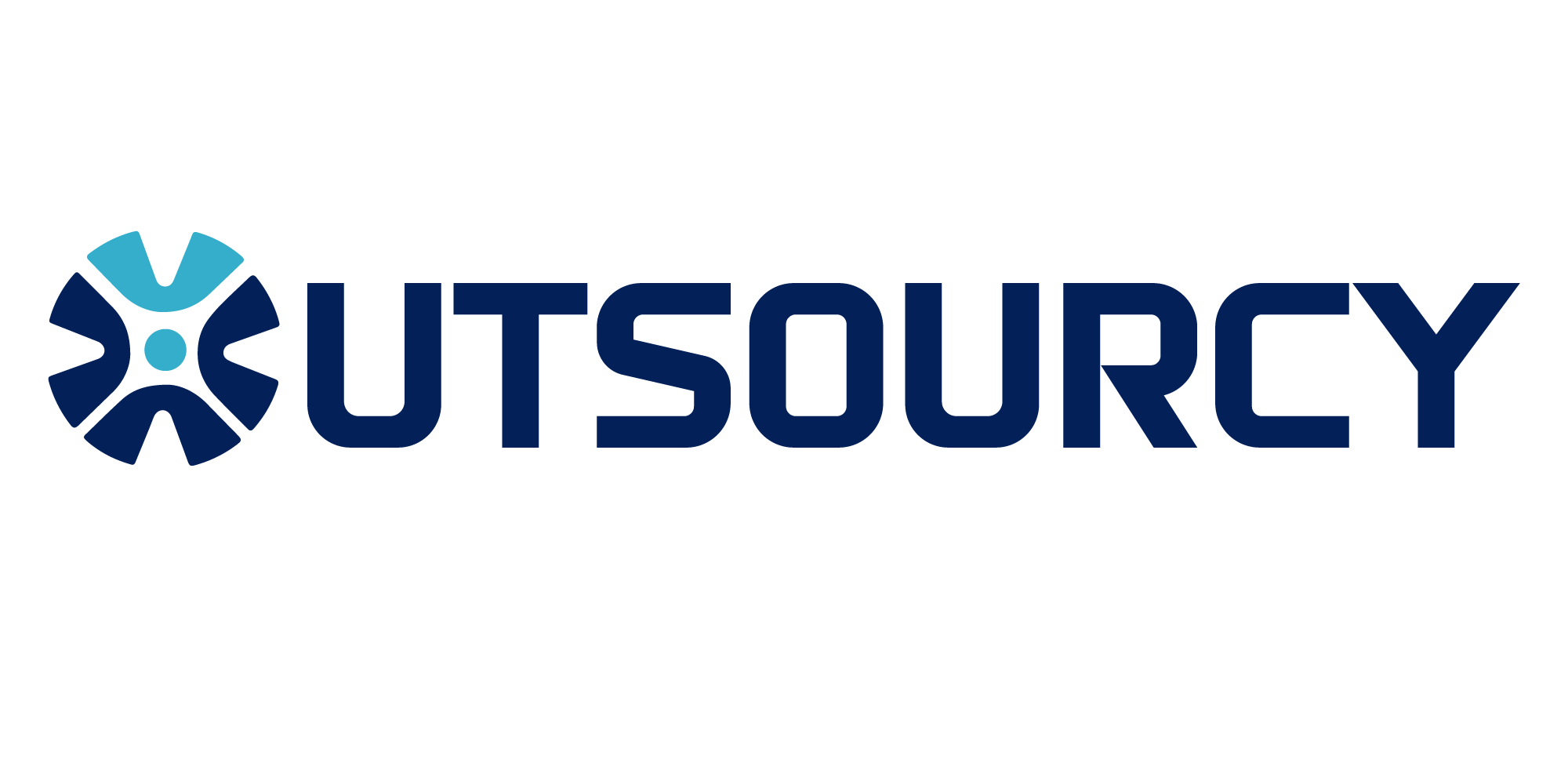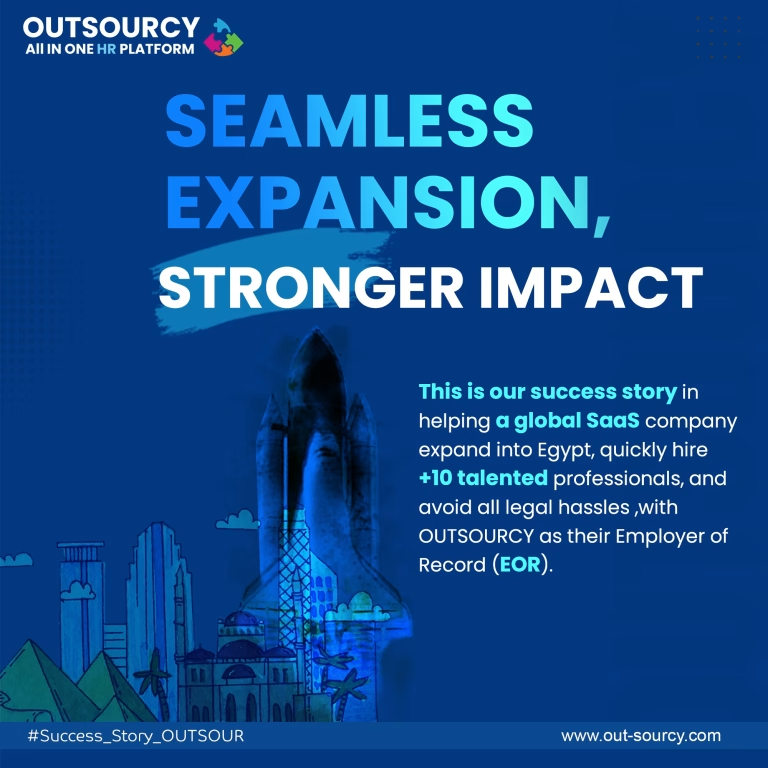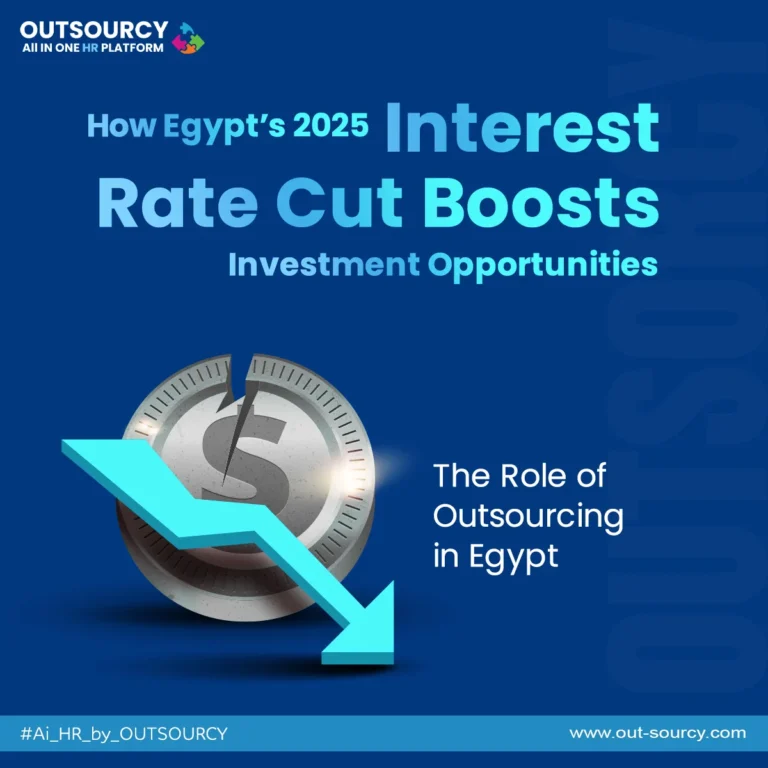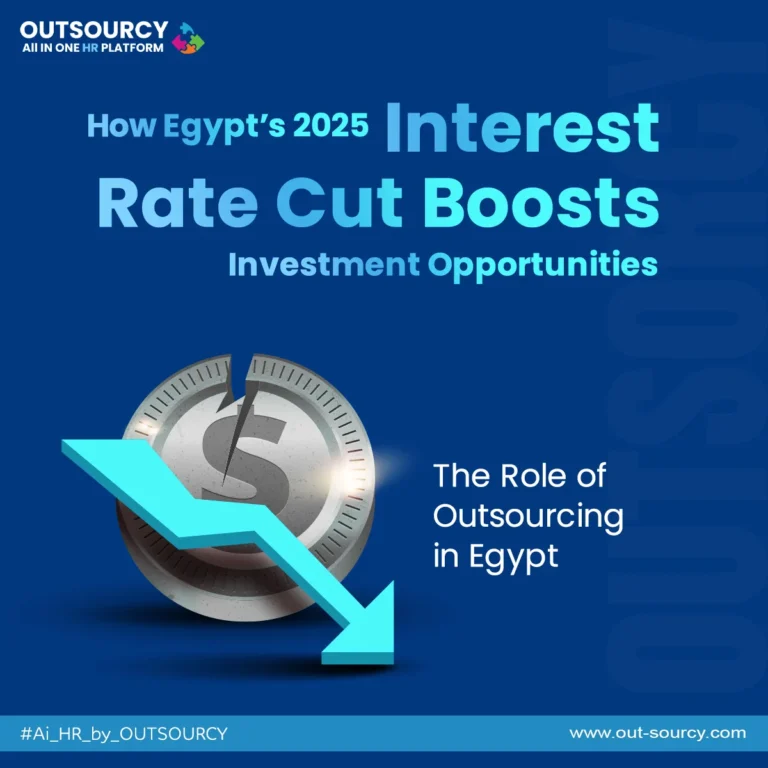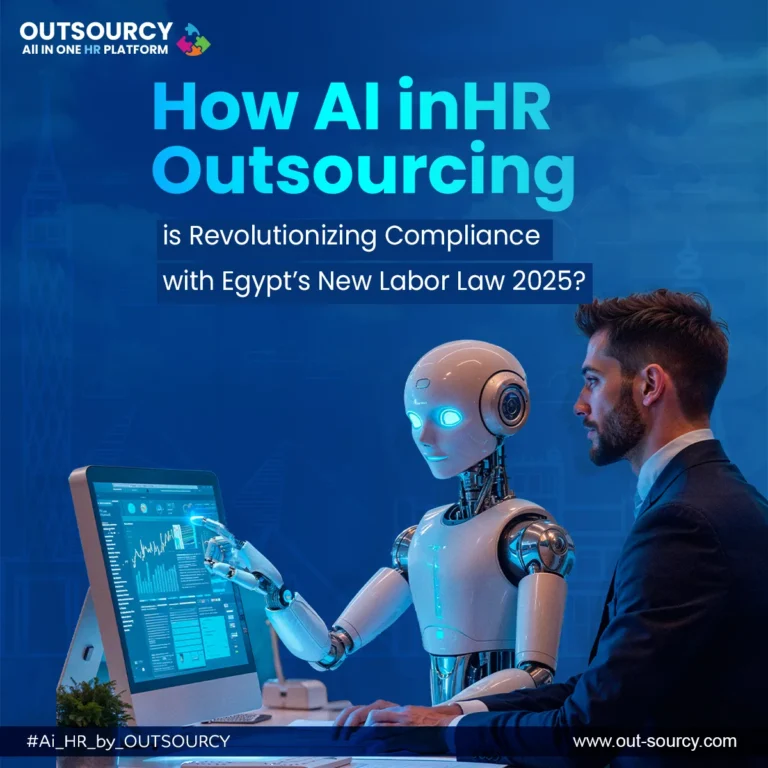In today’s fast-paced business environment, HR outsourcing has become a strategic choice for companies in Egypt and Arab countries seeking to enhance efficiency and competitiveness. With the HR outsourcing market in the Middle East and Africa projected to expand at a compound annual growth rate (CAGR) of 12.9% from 2024 to 2031, businesses are increasingly turning to external providers to manage HR functions. This growth is driven by economic reforms, technological advancements, and the need for compliance in dynamic labor markets. If you’re searching for “HR outsourcing in Egypt” or “benefits of HR outsourcing in Arab countries,” this article provides a comprehensive guide supported by data, statistics, and external sources to help you make informed decisions.

What is Human Resource Outsourcing (HRO)?
Human Resource Outsourcing (HRO) involves delegating some or all HR functions to an external provider, allowing internal teams to focus on core business activities that drive revenue. In Arab countries, small and medium-sized enterprises (SMEs) particularly benefit from HR outsourcing, as it provides access to advanced tools, ensures compliance with evolving laws, boosts productivity, and eliminates the need for an in-house HR department.
According to recent statistics, HR outsourcing can reduce recruitment costs by up to 70%. In Egypt, the business process outsourcing market, which includes HR services, is expected to reach US$461.26 million in 2025, reflecting the country’s growing appeal as an outsourcing hub due to its skilled workforce and cost-effectiveness. Globally, around 80% of companies outsource HR functions, highlighting its proven impact on operational efficiency. In the UAE and Saudi Arabia, HR outsourcing is booming, with the UAE market valued at approximately USD 500 million in 2024 and projected to grow at a CAGR of 6.2%.
Six Key Factors to Consider Before Outsourcing HR
Deciding on HR outsourcing is a pivotal move that can influence your business’s efficiency and growth. Understanding these factors is crucial for strategic decision-making. Let’s explore the primary considerations, backed by analysis and data relevant to Egypt and Arab countries.
1. Technology and Innovation
Evaluate the technology and tools employed by the HR outsourcing provider. Advanced HR software, automation, and AI-driven solutions can dramatically enhance process efficiency and accuracy. In the Middle East, 87% of HR leaders plan to adopt AI through outsourcing partnerships, transforming recruitment and employee management.
For instance, in Saudi Arabia, over half of businesses are expected to integrate AI-based HR systems by 2025 for talent acquisition and analytics. This trend is mirrored in Egypt, where digital HR tools have improved hiring efficiency by 22% in SMEs. Choosing a provider with cloud-based platforms like HRIS can reduce errors by up to 50%, making technology a critical factor for HR outsourcing in Arab countries.
2. Expertise and Experience
Assess the provider’s expertise and track record in HR management, including knowledge of local trends and regulations. In dynamic markets like Egypt and the GCC, experienced providers help navigate labor laws and cultural nuances.
Data shows that 78% of companies are satisfied with HR outsourcing costs due to specialized expertise. In Egypt, outsourcing has led to a 22% improvement in recruitment for small businesses, as reported by firms like Tawzef. Providers with proven experience can minimize compliance errors by 40%, essential in Arab countries where regulations evolve rapidly.
3. Scalability and Flexibility
Ensure the provider can scale services to align with your company’s growth and evolving needs, offering customizable solutions. In the GCC, 70.1% of organizations anticipate workforce expansion in 2025, underscoring the need for scalable HR outsourcing.
Saudi Arabia’s BPO market, including HR, is projected to generate USD 598.13 million in 2025, fueled by flexible services. Companies opting for flexible providers see productivity gains of 25%, according to Deloitte analyses. This factor is vital for HR outsourcing in Egypt, where economic fluctuations demand adaptable solutions.
4. Compliance and Risk Management
Verify the provider’s proficiency in labor laws, tax regulations, and legal requirements. Robust risk management prevents penalties and legal issues. In Egypt, HR outsourcing reduces risks by 30% amid economic volatility.
Statistics indicate that 85% of firms outsource HR for better compliance and cost reduction. In the UAE, outsourcing has helped 60% of companies avoid tax fines. For Arab countries, where Saudization and localization policies apply, expert providers ensure adherence, safeguarding business operations.
5. Service Level Agreements (SLAs)
Examine the SLAs for clear definitions of service quality, response times, and performance metrics. In Arab markets, 82% of companies rely on SLAs to optimize operations.
Analysis reveals that SLAs improve performance by 20% in the Middle East. Well-defined SLAs are crucial for HR outsourcing in Egypt and Saudi Arabia, ensuring accountability and alignment with business goals.
6. Cost Savings
Analyze potential savings against in-house HR costs, including salaries, benefits, training, and tech investments. HR outsourcing can yield 22% cost reductions in 2025. In Egypt, SMEs save up to $3,000 monthly on payroll alone.
The global HR outsourcing market is set to reach USD 68,978 million by 2032, with cost efficiency as a key driver. In Saudi Arabia, outsourcing enhances cost efficiency while maintaining quality.
Why the Right HR Outsourcing Partner Makes All the Difference
A deep understanding of these factors is essential for strategic HR outsourcing decisions. Selecting the ideal partner leads to enhanced efficiency, substantial savings, and a sharper focus on core activities. In Arab countries, with the market growing at 12.9% CAGR through 2031, HR outsourcing is indispensable for competitiveness.
Our comprehensive HR outsourcing services, covering payroll, talent management, and operations, help businesses in Egypt and beyond streamline processes, cut costs, and boost efficiency. Start evaluating these factors today for sustainable growth.
